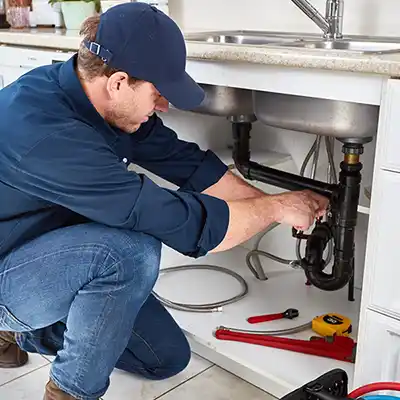
Introduction
Customer Relationship Management (CRM) systems have traditionally been associated with sales and marketing, but their applicability extends far beyond these domains. For plumbing businesses, a CRM system is more than a client database—it is a comprehensive platform integrating scheduling, billing, customer interaction, and project management. This integration reduces inefficiencies and errors caused by fragmented information and processes.
A 2023 report by Software Advice found that 78% of service businesses using CRM systems reported increased efficiency and better customer retention (Software Advice, 2023). With rising competition and growing customer expectations, adopting a CRM system can be a game-changer for plumbing businesses.
Core Functions of Plumbing CRM
A plumbing CRM solution is tailored to the industry's unique needs, offering features that optimize daily operations:
1. Customer Data Management
- Stores client details, service history, and preferences, ensuring personalized service and faster problem resolution.
- Example: When a technician arrives at a job, they can instantly pull up the client's past service records, allowing them to provide informed recommendations.
2. Scheduling & Dispatching
- Automates job scheduling to assign the right technician to the right job, minimizing travel time and maximizing efficiency.
- Example: ServiceTitan’s intelligent scheduling system reduces dispatch time by 25% for plumbing businesses (ServiceTitan, 2023).
3. Billing & Invoicing
- Reduces manual errors in billing and accelerates payments through automated invoicing and digital payment integration.
- Example: Housecall Pro reports that its automated billing features improve payment collection rates by 30% (Housecall Pro, 2023).
4. Communication Tools
- Enables real-time updates between office staff, field technicians, and customers.
- Example: A CRM like Bella FSM allows SMS messaging with customers to reduce missed appointments and improve response times(Bella FSM, 2023).
Benefits of Implementing a Plumbing CRM
1. Enhanced Customer Service
- Customers appreciate when businesses remember their preferences and history.
- Example: A plumbing company using a CRM can send automated service reminders, reducing missed appointments by 40%.
2. Improved Operational Efficiency
- Automating tasks like scheduling and invoicing frees up time for higher-value activities.
- Example: Businesses using CRM automation report a 20-30% increase in technician productivity (Forrester Research, 2023).
3. Data-Driven Decision Making
- CRM analytics help businesses track service performance, identify trends, and optimize marketing efforts.
- Example: A CRM can generate reports showing which service areas are most profitable, helping strategically allocate resources.
4. Scalability and Growth
- As plumbing businesses expand, a CRM scales with them, eliminating the need for system overhauls.
- Example: Large service providers use CRMs to manage thousands of customer interactions without sacrificing service quality.

Key Features to Look for in a Plumbing CRM
1. Customizable Dashboards
- Allows users to prioritize key performance indicators (KPIs) at a glance.
- Example: A manager can view real-time job completion rates and open invoices on a personalized dashboard.
2. Mobile Accessibility
- Ensures technicians can access job details, update service status, and communicate from the field.
- Example: A mobile app for CRM reduces phone call dependencies and enhances field efficiency by 35%.
3. Integration Capabilities
- A CRM for plumbers should seamlessly connect with accounting, marketing, and scheduling tools.
- Example: Integrating QuickBooks with a CRM simplifies expense tracking and financial reporting.
4. Reporting & Analytics
- Provides insights into performance metrics, helping businesses refine operations and customer service strategies
- Example: A CRM-generated heat map can identify high-demand service areas, improving marketing and resource allocation.
Overcoming Challenges in CRM Implementation
1. Resistance to Change
- Employees may resist new systems due to familiarity with old processes.
- Solution: Provide hands-on training and highlight time-saving benefits to improve adoption.
2. Data Migration
- Transferring existing customer data can be complex.
- Solution: Use data validation tools to prevent duplicates and maintain integrity.
3. Cost Considerations
- CRM adoption requires an upfront investment, but the ROI justifies the cost.
- Example: Businesses using CRM systems recover their investment in under 12 months through efficiency gains (Gartner, 2023).
Real-World Success Stories
Case Study: Slade Plumbing
Slade Plumbing, a mid-sized company, faced scheduling inefficiencies and inconsistent customer communication. After implementing a CRM, they reported:
- 25% increase in scheduling efficiency
- 30% improvement in customer satisfaction ratings
- 20% faster response times
By automating workflows and enhancing communication, Slade Plumbing expanded their service area without adding administrative burden.
Conclusion
A well-implemented plumbing CRM centralizes customer data, automates routine tasks, and delivers actionable insights. With data-backed benefits such as improved efficiency, customer satisfaction, and business scalability, investing in the right CRM is a strategic decision that drives growth.
For plumbing businesses evaluating CRM options, prioritizing integration, automation, and mobile functionality ensures long-term success in a competitive market. With careful selection and implementation, a CRM can transform operations and create a sustainable advantage.
Key Takeaways:
A CRM can increase efficiency by up to 30% (Forrester, 2023). Automation improves customer retention and reduces service delays. Mobile-friendly CRMs enhance field performance and response times. Choosing the right CRM ensures scalability and profitability.
Next Steps:
Evaluate CRM providers like Bella FSM, ServiceTitan, and Housecall Pro. Assess integration needs (QuickBooks, marketing tools, dispatching software). Conduct a cost-benefit analysis to determine ROI potential.
By taking these steps, plumbing businesses can ensure seamless CRM adoption and maximize efficiency for long-term success.
